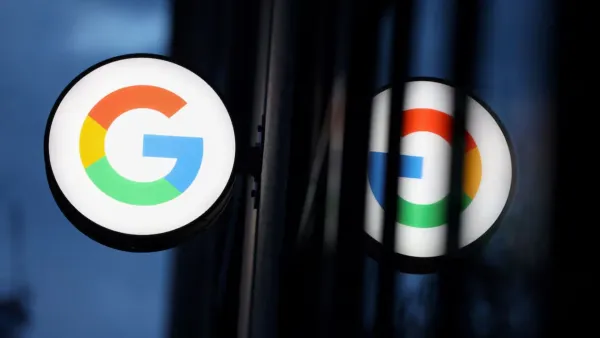Samsung Galaxy S25 Edge Launched: Ultra-Thin Smartphone with 200MP Camera, Snapdragon 8 Elite, Galaxy AI and More

At its annual I/O 2025 developer conference, Google didn’t just announce a bunch of new features—it laid out a bold new future, one deeply centered around artificial intelligence. The entire event felt like peeling back the layers of a Matryoshka doll, with every part of Google’s ecosystem now connected to a powerful AI core.
“More intelligence is available for everyone, everywhere,” said Sundar Pichai, CEO of Google and Alphabet. “And the world is responding, adopting AI faster than ever before.”
That message made it clear: AI isn’t just being added to Google’s existing tools. Instead, the company is rebuilding its entire digital universe around it. While this shift promises better personalization and smarter systems, it also raises big questions—especially about the data being used to fuel it all.
At the Heart: Google’s Gemini Models
The center of Google’s new strategy is its next-gen AI models—Gemini 2.5 Flash and Pro. These are not just upgrades; they’re designed to be the engines powering everything from chat features to developer tools.
The Pro version now includes something called Deep Think, a new reasoning mode using parallel processing. It’s already shown it can solve tough math problems and write complex code—earning high marks on the 2025 U.S. Math Olympiad test. For now, only select testers will get access through the Gemini API, but Google’s hinting at much more to come.
The Flash model has also been supercharged. It’s now more efficient, using 20–30% fewer data tokens, and is set to become the default for most Gemini app users. Both models now support more natural conversations through native audio output and can speak in two voices across 24+ languages.
New Hardware, New Power
To support all this, Google also introduced its Ironwood TPUs (Tensor Processing Units)—its seventh-generation AI chips. They’re reportedly 10 times faster than the previous generation, offering up to 42.5 exaFLOPS of computing power per pod. This kind of muscle is necessary to train and run advanced models like Imagen 4 (for images), Veo 3 (for video), and Lyria 2 (for music).
But with great power comes great responsibility. These models need huge amounts of data to learn from—and not all of that data may have been ethically sourced.
Copyright & Data Ethics: A Growing Storm
One of the biggest concerns surrounding generative AI right now is the use of copyrighted material without permission. While Google says it’s using tools like SynthID to watermark AI-generated content and help identify it, these are just partial solutions. The deeper issue—who owns the data feeding these models—remains largely unresolved.
There’s still no clear system in place for compensating original creators, raising ongoing debates about copyright, fair use, and the ethical boundaries of AI training.
Developer Ecosystem: Smarter Tools, More Control
Just beyond the AI core is where developers come in. Google’s Gemini API and Vertex AI platforms are now equipped with powerful tools to help developers create smarter apps and systems.
There’s a focus on giving developers “thought summaries” to see how the AI reached a decision, plus “thinking budgets” that let them manage how much computing power a model uses. A key addition is support for the Model Context Protocol (MCP), which helps AI agents share data and work together across platforms.
Google also previewed Project Mariner, a new research tool being added to Gemini and Vertex AI to help users automate more complex tasks.
AI for Everyone: Where Users Come In
Most people will interact with this AI overhaul through everyday tools like Search, Shopping, and the Gemini app. Google is rolling out a new “AI Mode” in Search for U.S. users, which brings better reasoning and the ability to perform multimodal searches. One feature, Deep Search, even creates full reports with citations—though experts warn the accuracy and fairness of those citations must be closely watched.
On the shopping front, users will soon be able to upload photos of themselves to try on clothes virtually, and a new “agentic checkout” will complete purchases automatically. It’s fast and convenient, but also raises serious questions about how much personal and financial data Google is collecting and how it’s protected.
The Gemini App: A Hub for AI Life
The Gemini app is becoming the nerve center of Google’s AI push. It now includes a Live feature on both Android and iOS, along with image generation and even video generation for those on the new Google AI Ultra subscription tier. A new Deep Research function can analyze your private files, like documents and photos, to give more personalized answers. But this digs deep into user data—and Google will need strong safeguards to make sure it’s not crossing privacy lines.
Inside the app’s Canvas workspace, users can now make quizzes, infographics, and even podcasts using voice support in over 45 languages. Google is also building Gemini directly into Chrome, letting users summarize or ask questions about web pages—starting with U.S.-based Pro and Ultra users.
For developers, a new AI coding assistant called Jules is now in global beta. It connects directly to codebases, using Gemini 2.5 Pro to write tests, add features, and fix bugs.
The Big Picture: Innovation Meets Responsibility
Sundar Pichai described it as a “new phase of the AI platform shift”, and it’s clear that Google is going all in on AI. But with the launch of a new paid Ultra tier, some are wondering if this also means a “privacy paywall”—where only those who pay more get better protections or more responsible AI behavior.
As Google reshapes its entire ecosystem, the real test will be how it handles the balance between innovation, usefulness, and ethical responsibility. The layers of this AI Matryoshka doll are still unfolding, and each one comes with bigger decisions—and bigger consequences.
-
Obesity Reduction: These 3 raitas are a panacea for weight loss, stubborn fat will melt quickly

-
Already Explored Uttarakhand And Himachal? Here Are 5 Nepal Treks You Can’t Miss If You Love The Himalayas

-
Specs, price, features, and availability

-
RCB included Tim Seifert in the team in place of Jacob Bethell

-
Stars Stun Oilers With Third-Period Comeback in Game 1
